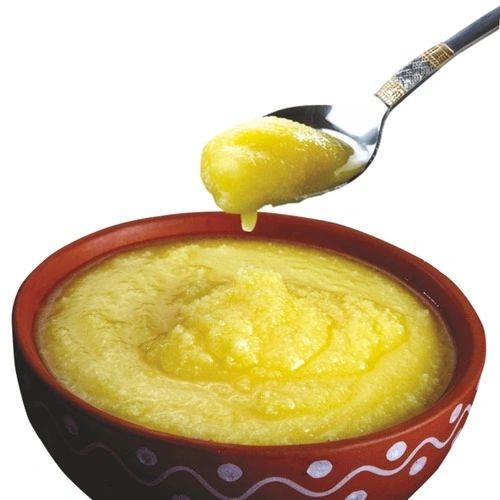
Is Ghee Good for your Health? Ghee is a source of saturated fats. And the role, saturated fats have to play when it comes to cardiovascular diseases is a continuing topic of debate among health experts. However, the human body cannot function without any saturated fats either. While an excessive amount of saturated fats is unhealthy, it is essential in limited quantities. Saturated fats and proper brain functioning are closely related. So while ghee does contain saturated fats, using a limited amount of ghee can both enhance the flavor of the food and deliver essential fats to the body. What this shows is that most normal people will experience, little to no health problems from consuming ghee. However, this may not hold for people who are already predisposed to certain hereditary diseases like heart diseases. This predisposition can result from genetic factors or other factors.
6 Health Benefits of Ghee You Should Know
Ghee is not just an ingredient used in cooking, but a part of India’s heritage in traditional medicine – the Ayurvedic tradition of healing. In ancient times, ghee was considered to be food sacred to the Gods. And this was how ghee started finding use in everything from lighting lamps, to being used in religious rituals, to being consumed as a health supplement. As it turns out, ghee has a lot to offer health wise:
1. Positively affects the nervous system : Ghee positively affects not just the central nervous system in the brain, but also the enteric nervous system in the gut. Ghee contains many vitamins and minerals that regulate and repair the gut lining which in turn is important for brain health as well.
2. Rich source of Butyric acid : Ghee is a rich source of butyric acid. Butyric acid is a kind of short-chain fatty acid that improves and supports probiotic bacteria that is present in the stomach. Ghee also has additional benefits, such as balancing the amount of hydrochloric acid present in the stomach and assisting the production of bile in the liver. It helps to regulate our bowel movement.
3. Rich in Omega 3 fatty acids: These are also known as essential fatty acids that the body cannot make and need to be supplied through food. Ghee is rich in DHA, a type of omega 3 fatty acid, which has been linked to brain development, reducing inflammation, slowing down the aging process, and many more functions.
4. Important source of fat-soluble Vitamins: Ghee is a rich source of important fat-soluble vitamins like vitamins A, E, K2, and D. The body absorbs fat-soluble vitamins best when a person eats them with higher-fat foods like ghee. These vitamins have many functions like improving immunity, good vision, and good antioxidant effects.
5. Conjugated linoleic acid Also known as CLA, :this acid is known for its ability to reduce tumors in the body, lower the amount of blood cholesterol, and improve and stabilize blood pressure. Ghee is a good source of CLA. 6. Powerful antioxidant abilities. The presence of vitamin E provides ghee with powerful antioxidant abilities. Ghee is also known to be good for the skin, as well as the hair. People don’t just consume ghee, but use it to make homemade face masks, hair masks, and more. As ghee retains its structural integrity at very high cooking temperatures, it becomes a great ingredient to be used in dishes that involve frying, sauteing, and other techniques that involve cooking on high heat. Ghee is both a popular source of essential nutrients, as well as an important flavoring ingredient in many contemporary dishes. How to make ghee at home• boil and cool milk overnight• remove milk cream (malai) in container and add 1 tsp curd. collect for 3-4 days• churn into white butter and remove the buttermilk(it can be consumed with salt and roasted cumin seeds)• heat the butter on slow flame and remove from gas when you see bubbles. The khoya or residue should be golden brown in color.• Strain the ghee and store in a glass or steel container.. Avoid re heating of ghee and to avail its health benefits add raw ghee to your pulses, roti , and rice.
Written By Dietician Sarika Sharma